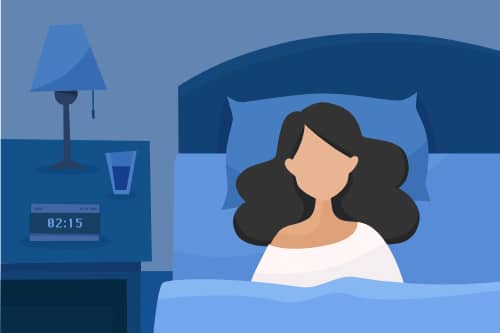07/10/2023
07/10/2023

NEW YORK, Oct 7, (Agencies): When it comes to sleep preferences, individuals are often categorized into two groups: early birds and night owls. Each group has its own set of stereotypes, with society often praising early risers while sometimes unfairly portraying night owls as lazy. But what does the research actually reveal about these two sleep patterns, and what do doctors have to say about them?
There's a substantial body of research supporting the health benefits of waking up early and maintaining a consistent bedtime. A 2020 cohort study involving over 5,000 participants, published in the Scandinavian Journal of Medicine and Science in Sports, found that early birds had up to 60 to 90 minutes more daily activity compared to night owls. Increased physical activity is associated with a reduced risk of various serious health conditions, including heart disease, stroke, and type 2 diabetes.
Another study published in JAMA Psychiatry in 2021 linked early risers with a lower risk of developing depression. Analyzing genetic databases and sleep patterns of over 800,000 adults, researchers found that for each hour earlier individuals reached their midpoint of sleep, their risk of major depression decreased by 23%.
Conversely, a study in the Annals of Internal Medicine revealed that night owls had a higher risk of developing type 2 diabetes. Examining data from 63,676 nurses aged 45 to 62, the study found that night owls were 54% more likely to have unhealthy lifestyle habits such as smoking, inadequate sleep, lack of exercise, and poor diet. Night owls also had a 19% higher risk of developing type 2 diabetes.
Furthermore, research published in Chronobiology International this year indicated that early birds tend to live longer. Analyzing data from nearly 24,000 twins over several decades, the study found that night owls had a 9% greater risk of early death when factors like alcohol use, smoking, body mass, and sleep duration were taken into account.
Despite these findings, night owls aren't without their strengths. Older research has suggested that late-night individuals are more likely to exhibit creativity, while another study found that they tend to be mentally alert with faster response times before bedtime.
The preference for a particular sleep schedule can be influenced by various factors, according to Dr. Beth Malow, director of the Sleep Disorders Division at Vanderbilt University Medical Center. Biological factors play a role, but habits and external factors, such as a spouse's bedtime, can also contribute.
Dr. W. Christopher Winter, a neurologist and sleep medicine physician, acknowledges that societal judgment unfairly targets night owls. He emphasizes the importance of diversity in sleep schedules, as it benefits society as a whole. "I'm glad there are night owls out there," he says. For instance, night owls are valuable in critical roles like healthcare and aviation, where alertness during unconventional hours is crucial.
In conclusion, while research underscores the advantages of being an early bird, doctors stress that the key is to ensure you get the recommended seven or more hours of sleep per night. Sticking with a sleep schedule that suits your natural rhythm is often more beneficial than trying to force a change. The goal is consistency, along with a focus on maintaining a healthy lifestyle through exercise and good nutrition.


